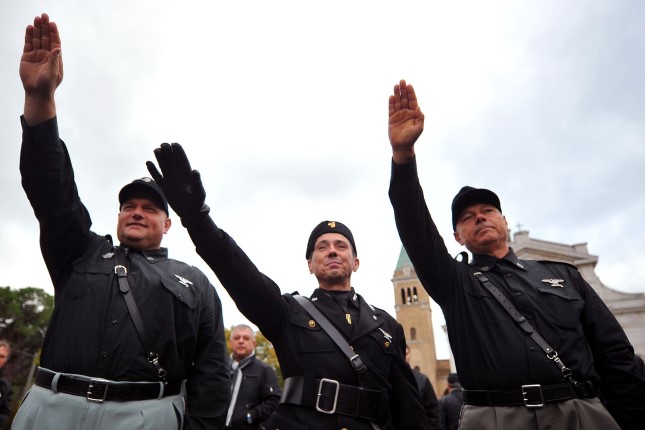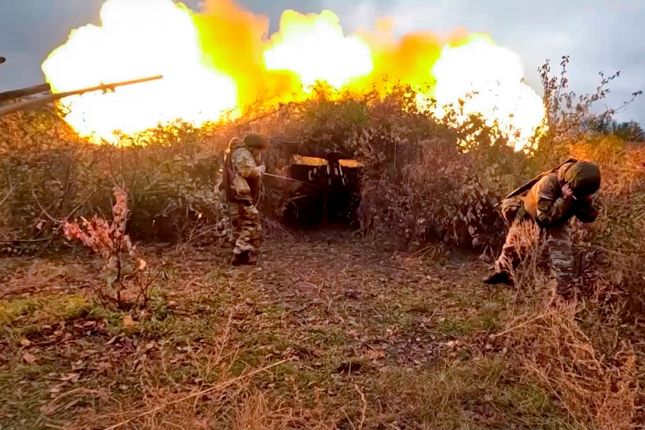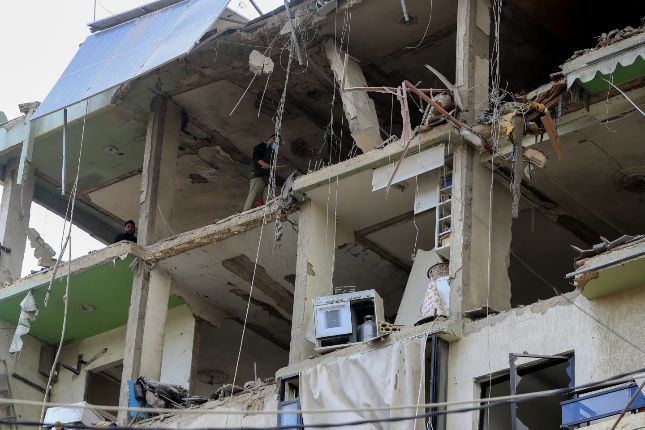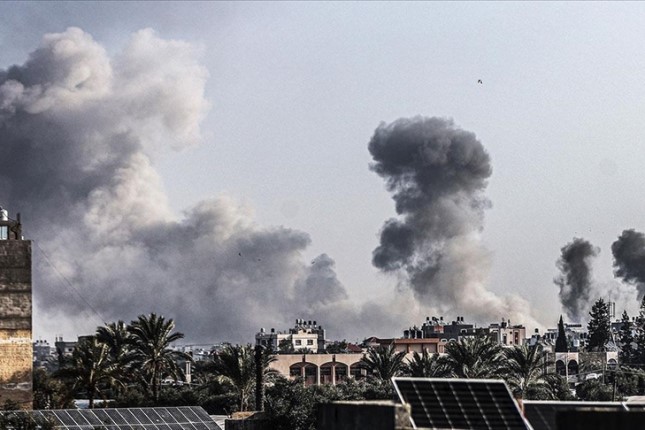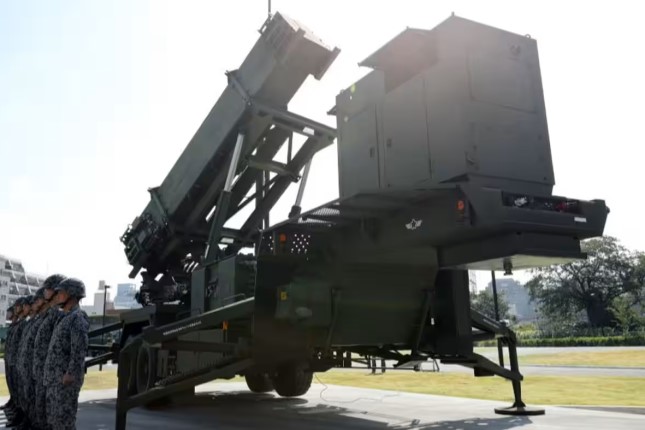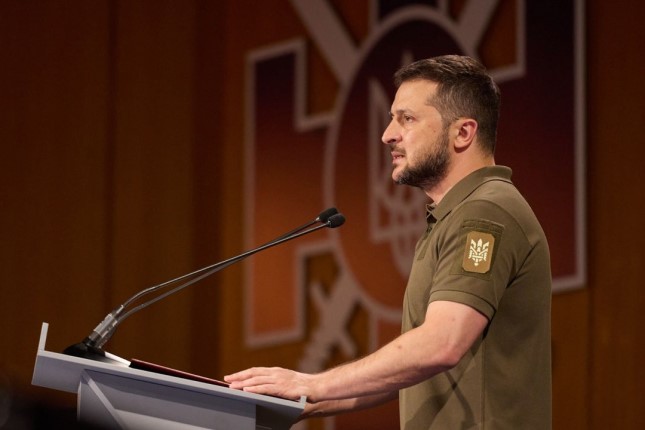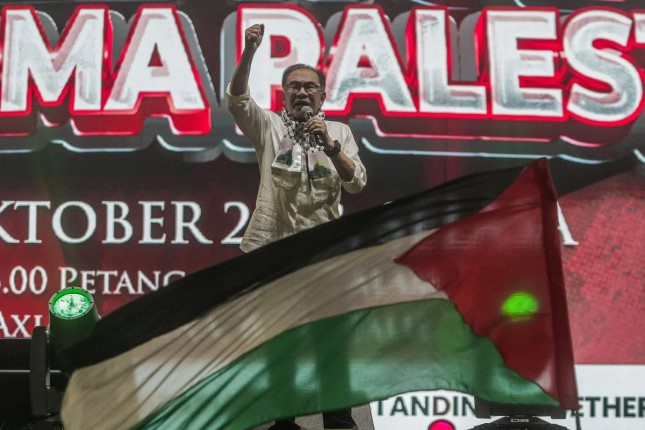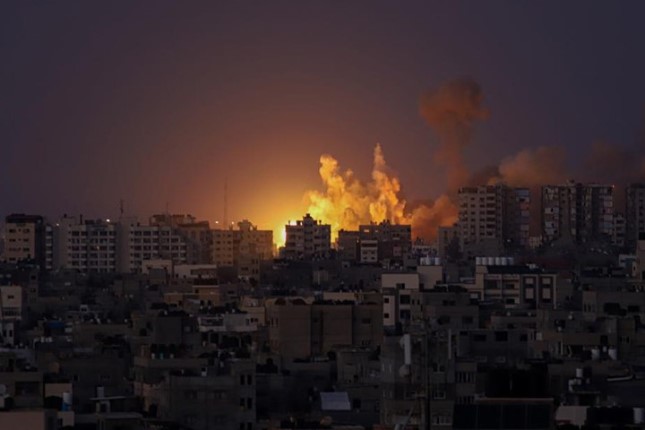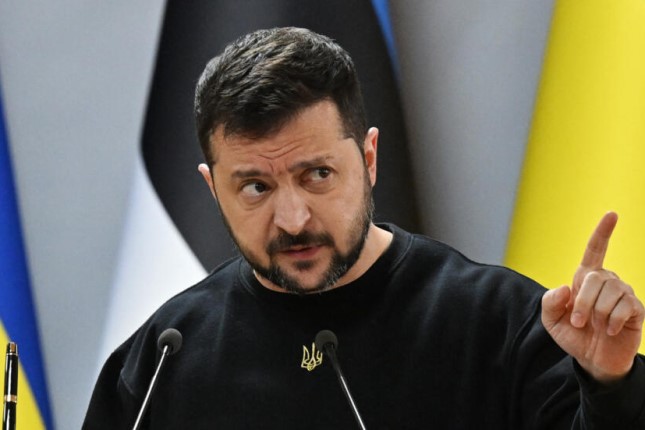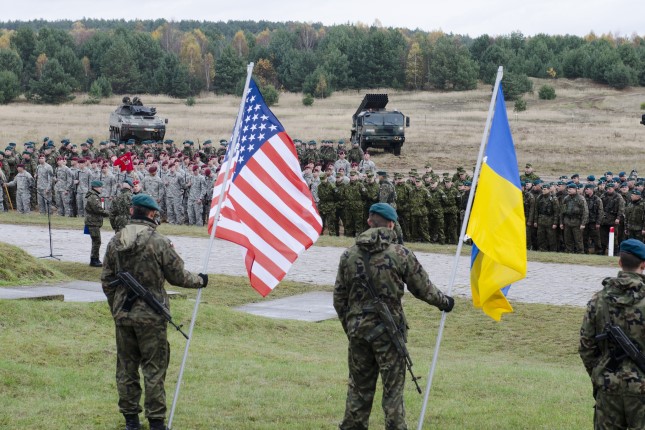At the beginning of November 2022 a very remarkable vote took place at the UN on the resolution "Combating glorification of Nazism, neo-Nazism and other practices that contribute to fuelling contemporary forms of racism, racial discrimination, xenophobia and related intolerance". The corresponding resolution, initiated by Russia, has been adopted annually since 2005, each time in a new edition.
For a decade and a half, the main and almost the only "opponent" of the adoption of the document was the United States and the vassal islands of Oceania, Canada, and Japan that adjoined it from time to time (in 2011, one and a half dozen European countries also joined), and since 2014 − Ukraine. However, this year the situation has changed dramatically. The European states, Australia, New Zealand, Japan and several other countries opposed the resolution in their entirety. As a result, the document was adopted anyway: 105 countries voted "for", 52 "against", and 15 abstained.
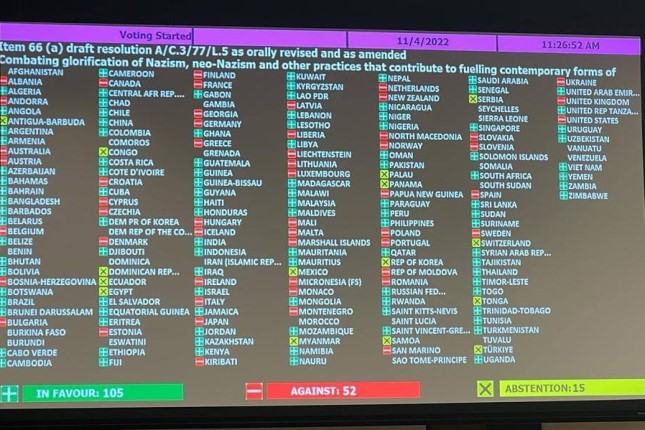
The results of the vote in the UN.
Why is it that the results of voting on the generally passing annual UN resolution on the fight against the glorification of Nazism have a symbolic meaning, and the document reflecting its results, in fact, becomes the first official document fixing the basis of the "bloc of Nazi states"?
For the United States, voting against this resolution has always been a kind of opposition to the Russian initiative, the rejection of which was motivated by the values of "freedom of speech". And the Americans, in their discontent, have always been marginal, as evidenced by the support, mainly from Palau, the Marshall Islands, Kiribati, Micronesia and later − Ukraine. Now this opposition has grown into a political project − a unification of the entire "Western world" within the framework of voting against the Russian anti-Nazi initiative.
Of course, such a vote does not make either the United States, or Great Britain, or Australia and New Zealand "Nazi". They fought in the anti-Hitler coalition, the main events took place "overseas", and all the flirting with Nazism in Washington before and after the Second World War can be attributed to the political projects of big business and the games of the security services, which in no way affect the population and its mindset, the very essence of the state and historical narratives. So, as part of a political project, they only persuaded their European satellites to vote in the direction they needed. There is even a video in which a representative of the US delegation checks and notes the presence of "disciples" from among the allies in the "collective West" before the meeting of the Third Committee on the draft resolution on combating the glorification of Nazism, so that no one "jumps off" and "deviates from the party line".
However, for Europeans, this is a truly significant event. For the first time, the change in attitude towards Nazism and modern political processes associated with it is reflected in an official international document at the UN level. These are not abstract political questions and affairs of bygone days but a living historical, cultural and political tissue.
Germany is the main country responsible for spreading misanthropic ideology and genocide in Europe, the death of tens of millions of people and the Holocaust. The recurrent theme of the post-war Federal Republic of Germany is remorse, re-education, and "never again". Even when there was a split in the ranks of the EU in 2011 and some of the EU member states voted against and some abstained, the representatives of Germany, Italy and Austria swore to Russian colleagues that they would never, for reasons of principle, be able to vote against a document that condemns glorification Nazism.
Now Berlin for the first time refuses a document condemning Nazism and its modern practices, as well as the destruction of monuments to the Soviet liberators of Europe. The way is open to reconsider the attitude towards the figures and policies of the Third Reich, the rehabilitation of Nazism. SS units were not so much criminal organizations, and the Wehrmacht was just defending the fatherland. The issue of revising European borders, already neatly, but quite transparently raised by Chancellor Olaf Scholz, already adjoins here, as The Columnist already wrote in detail.
Austria can no longer pretend to be solely a victim of Nazi Germany, which occupied it during the Anschluss, back of on pacifism, and recall the brave pages of its real military history and exploits on the fields of World War II as part of the German army. What was it if not the protection of the fatherland from danger from the East?
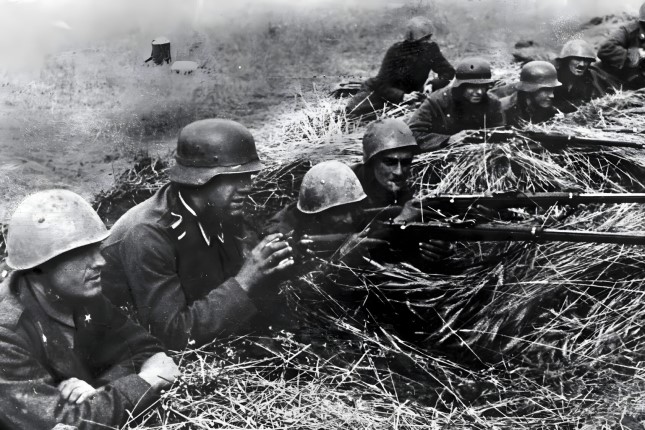
Italian and German soldiers on the Eastern Front, in the city of Stalino (today Donetsk). 1941
In Italy, where the current Prime Minister Giorgia Meloni cosplays Mussolini, they will be able to proudly and openly recall military exploits in Africa and on the Eastern Front, especially since the Italians, unlike the Germans and many other Europeans, do not have a trail of heavy mass genocidal crimes.
The Spaniards will raise the "exploits" of the "blue division" even higher on the shield, the Finns will be even more proud of the exploits of the "defenders of the fatherland" who participated in the blockade of Leningrad and the genocide of the Russian population.
French collaborators in the Waffen-SS and the Vichy government turn out to be not so much traitors, but part of the general historical struggle of Europeans with the "barbarian hordes from the East", and their historical role is no less significant than that of Charles de Gaulle's "Free France".
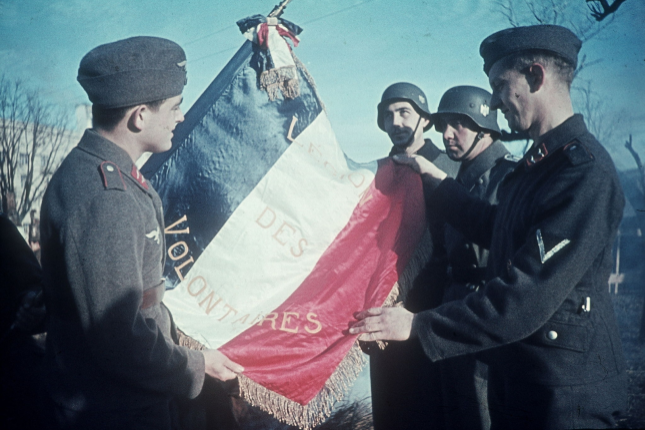
Soldiers of the French Legion of the Waffen-SS somewhere on the Eastern Front. 1941
All this also applies to other Western Europeans who joined Hitlerism. The pro-Hitler army units and governments of all Eastern European countries all together, without discrimination and now officially fall into the category of liberators, which one should be proud of, and even the extermination of Jews and Russians in the occupied Soviet territories is not a crime, but a harsh, difficult, but necessary act of war in those conditions.
Such a "revolution" in history creates the ground not only for the demolition of all Soviet monuments and the complete discredit of the Soviet liberators but also for the justification and preparation of a new "Drang nach Osten" against the "barbarian Russian hordes". Once inconvenient for Europeans, the "problem" with the support of outright Nazis in the Ukrainian army and government is also being solved. Now they are just a European spearhead unit, the first victim of the "hordes from the East" that needs help.
So the rejection of anti-Nazism by the whole of Europe (so far in the form of a resolution recorded in the UN) is indeed a significant event, both on symbolical and practical levels.
